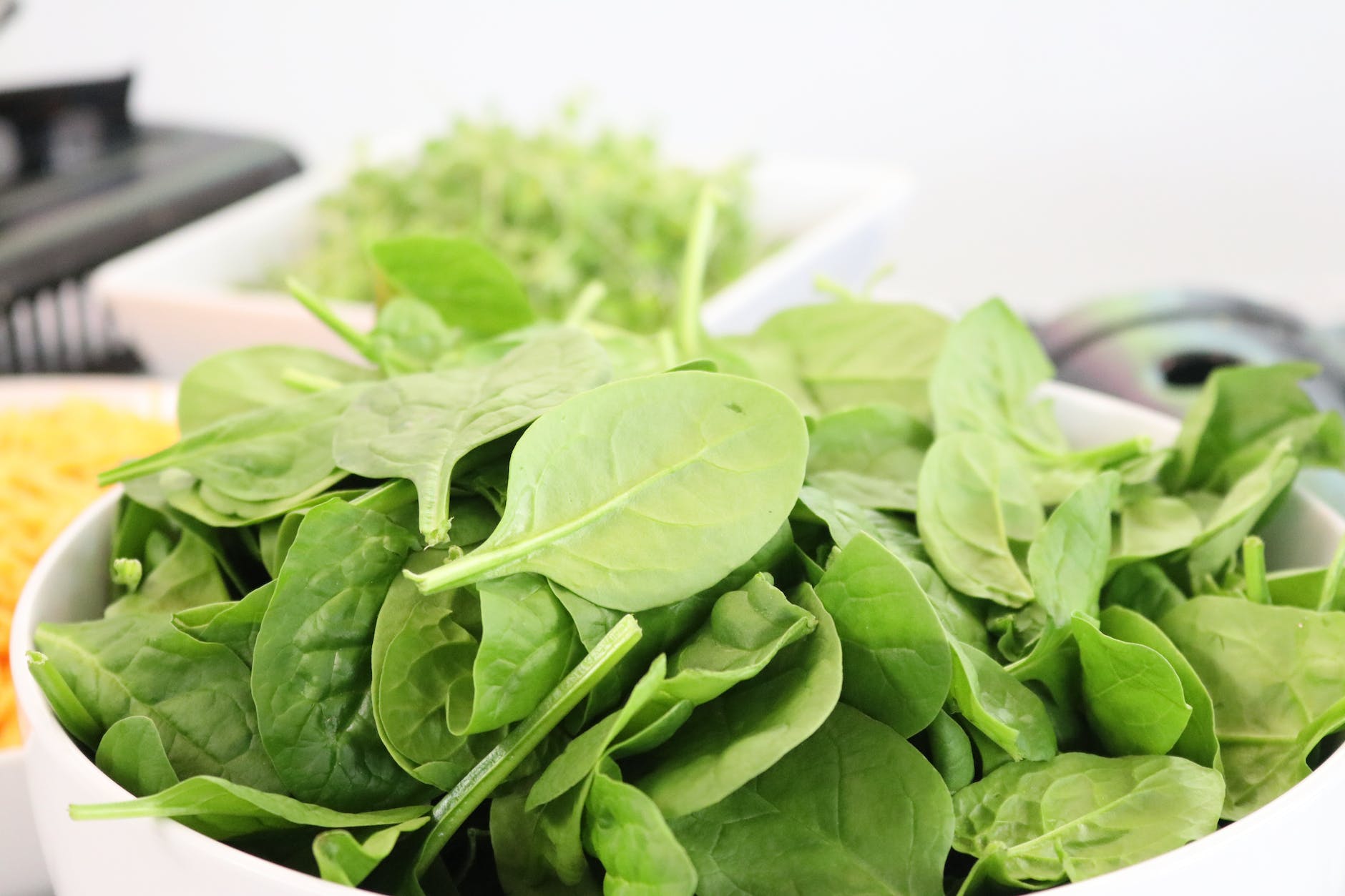
Introduction
During pregnancy, the need for iron significantly increases to support fetal growth and increase blood volume. To help meet these needs, I’ve prepared five delicious green smoothie recipes that combine iron-rich spinach with the natural sweetness of apples. These smoothies are not only packed with essential nutrients but are also easy to make and perfect for busy moms-to-be.
Why Spinach and Apple?
Spinach is a superfood, particularly high in iron, which is crucial for preventing anemia in pregnancy. It’s also rich in folate, calcium, and vitamins A and C. Apples, on the other hand, are a great source of fiber, vitamin C, and natural sweetness, making them the perfect complement to spinach’s earthy flavor.
1. Classic Spinach and Apple Blend
- Ingredients: 2 cups fresh spinach, 1 large apple (cored and sliced), 1 banana, 1 cup almond milk, 1 tablespoon chia seeds.
- Preparation: Blend the spinach and almond milk first to create a smooth base. Add the apple, banana, and chia seeds and blend until creamy.
- Benefits: This smoothie is a nutritional powerhouse, providing a significant amount of your daily iron and fiber needs.
2. Citrus Spinach Zing
- Ingredients: 2 cups spinach, 1 apple, ½ cup orange juice, ½ lemon (juiced), 1 tablespoon flaxseeds.
- Preparation: Combine all ingredients in a blender and mix until smooth. The citrus fruits add a refreshing tang and aid in iron absorption.
- Benefits: The vitamin C from the citrus fruits enhances iron absorption from spinach, making this an ideal choice for iron intake.
3. Green Protein Punch
- Ingredients: 2 cups spinach, 1 apple, 1 ripe banana, 1 cup Greek yogurt, 1 tablespoon peanut butter.
- Preparation: Blend spinach, apple, and banana first. Add Greek yogurt and peanut butter for a creamy texture and protein boost.
- Benefits: Greek yogurt adds protein and calcium, while peanut butter provides healthy fats, making this smoothie both filling and nutritious.
4. Berry Spinach Delight
- Ingredients: 2 cups spinach, 1 apple, ½ cup mixed berries, 1 cup coconut water, 1 teaspoon honey (optional).
- Preparation: Blend the spinach, apple, and berries with coconut water until smooth. Sweeten with honey if desired.
- Benefits: Berries add antioxidants and additional vitamins, while coconut water provides hydration and a slight sweetness.
5. Avocado Spinach Cream
- Ingredients: 2 cups spinach, 1 apple, 1 ripe avocado, 1 cup water or almond milk, 1 teaspoon lemon juice.
- Preparation: Blend all ingredients until you achieve a creamy, smooth texture. The avocado adds richness and healthy fats.
- Benefits: Avocado is high in folate and healthy fats, essential for fetal development, and adds a creamy texture to the smoothie.
Conclusion
These five iron-enriched green smoothies are perfect for pregnant women looking to boost their iron intake in a delicious and natural way. Rich in vitamins, fiber, and essential nutrients, these smoothies are a great addition to your pregnancy diet. Enjoy them as a nutritious start to your day or as a refreshing midday snack!
10 FAQs for “5 Iron-Enriched Green Smoothies for Pregnancy with Spinach and Apple”
- Can I use frozen spinach instead of fresh? Yes, frozen spinach is just as nutritious as fresh. It’s convenient and often more economical, making it a great option for smoothies.
- Is it safe to consume spinach every day during pregnancy? Spinach is safe and beneficial to consume daily during pregnancy, but it’s important to eat a varied diet to ensure you’re getting a range of nutrients.
- How can I ensure maximum iron absorption from these smoothies? To enhance iron absorption, include a source of vitamin C with your smoothie, like orange juice or lemon, as found in some of these recipes.
- Can I add protein powder to these smoothies? Certainly! Adding an unsweetened protein powder is a great way to increase your protein intake, which is important during pregnancy.
- What kind of apple works best for these smoothies? Any variety of apple works, but sweeter apples like Fuji or Honeycrisp can add more natural sweetness to your smoothies.
- Are these smoothies suitable for managing gestational diabetes? While these smoothies are healthy, they do contain natural sugars from fruits. If you have gestational diabetes, monitor your portion sizes and consult with your healthcare provider.
- Can I prepare these smoothies in advance? These smoothies are best consumed fresh, but you can prepare them a few hours ahead. Store them in the fridge and give them a good stir or shake before drinking.
- What can I substitute for banana in these recipes? If you’re not a fan of bananas, avocados make a great substitute, adding creaminess without the strong flavor. Pears are also a good option.
- Can I use a different type of milk? Absolutely! Feel free to use any milk you prefer, whether it’s cow’s milk, soy, oat, or any other plant-based milk.
- Is there a way to make these smoothies sweeter without adding sugar? Yes, to naturally sweeten your smoothies, you can add more ripe bananas, a bit of honey, or even a few dates. These will add sweetness without the need for processed sugar.
Blog Tags
Pregnancy Nutrition, Iron-Rich Smoothies, Spinach Recipes, Healthy Pregnancy Diet, Green Smoothies, Easy Pregnancy Recipes, Natural Iron Sources, Maternal Health, Nutrient-Dense Foods, Energy Boosting Smoothies











